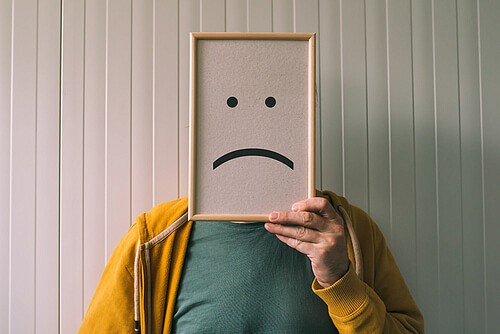When a person matures into the senior years of their life, they may develop feelings of sorrow and melancholy that derive out of the aging process. This declining is normal, but geriatric depression should not be a lasting part of growing older.
Depression in the elderly is hard to detect at times due to their progression in life, misdiagnosis, and lack of treatment. Since medications, illnesses, and changes in stability are all factors that senior citizens encounter often, it is not unlikely that depression can settle in with some. Geriatric depression only affects 5 percent of the elderly, which breaks down to 14 percent of those who require healthcare and 12 percent that are hospital patients. Senior citizens that live alone are in risk of isolation and not asking for the help that they need because they fear that their independence may be taken away from them.
Geriatric depression produces the same symptoms that any age of depression will endure. Depression can cause physical pains and aches for anyone, although with elderly patients their pain may be more much severe solely from depression instead of other medical ailments or aging. Some symptoms to look for when diagnosing depression is fatigue, crying, aloofness, discontentment, irritability, seclusion, memory loss, lack of interest with life, or suicide.
When determining if a person has geriatric depression, a mental health expert will assess their symptoms by looking into the history of family health, mood changes, behavioral changes, along with their daily regime. Other considerations when looking into geriatric depression can be brought to light by possible causes such as grief from the loss of loved ones, decreased mobility, retirement, financial problems, substance abuse, and fear of dying.
There is help for elderly depression that may consist of changes in lifestyle, medication, and therapy. While some people need a combination of all three, others will need a variation of the three to alleviate the symptoms. Some patients will need antidepressants and therapy while others may be successful at relieving depression by changing diet, exercising, getting a healthy amount of sleep, finding new interests, and socializing to help pacify the manifestation of geriatric depression.
Most people of the geriatric population who have depression will not even know that they are struggling with a mental disorder that is easily treated. Cognitive, behavioral, and physical symptoms can be clear cut indicators of the bigger picture – geriatric depression.








